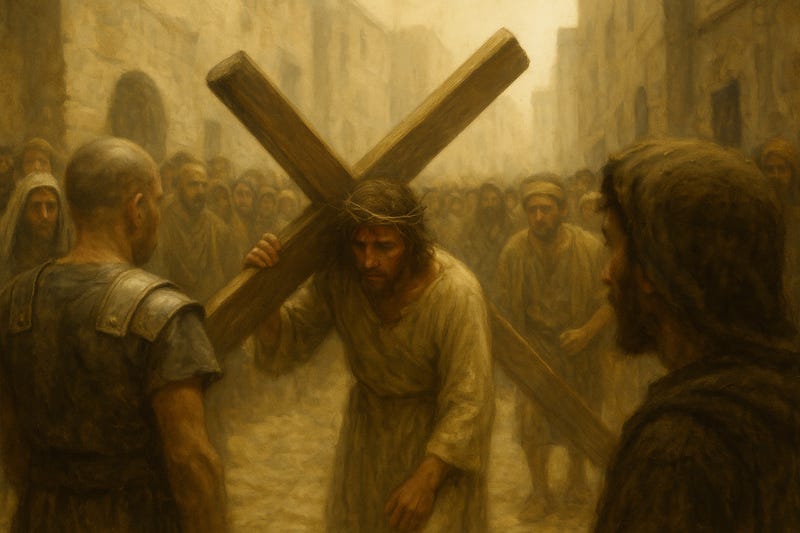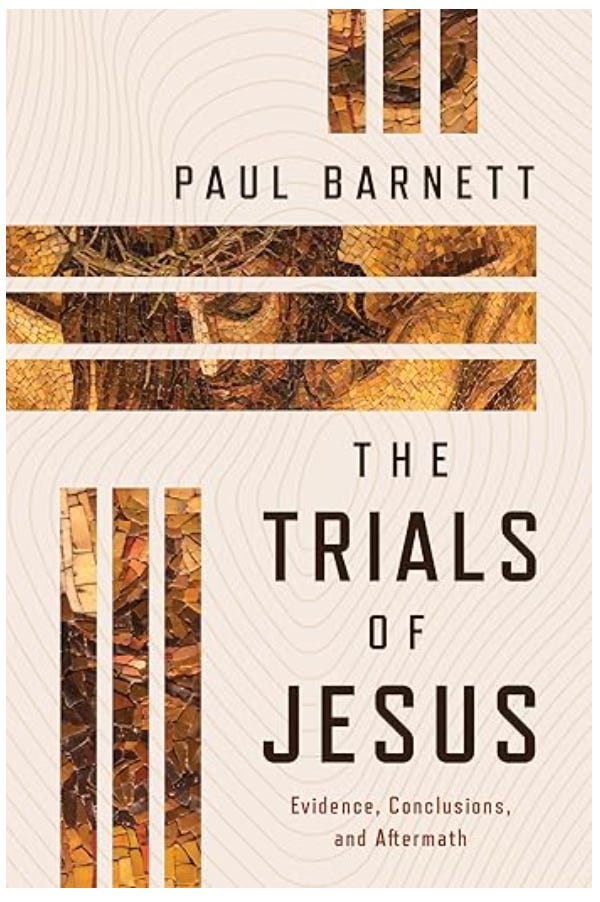“I Saw Him Pass”: A Witness Recalls the Day Jesus Walked the Via Dolorosa
Recorded via ChronoTranscriptor™ – February 14, 2025
[Host Introduction]
On this episode of ChronoTalks, we speak not with a famous leader or revolutionary, but with a quiet man—Yehuda ben Eliam, an elderly resident of Jerusalem in the 1st century CE. He lived a simple life, never left the city, and never joined the movements or uprisings of the time.
But one day, as a young boy, he stood in the narrow alleyway that would later be known as the Via Dolorosa—and for a brief moment, he saw a man walk past under the weight of a Roman cross.
Only years later did he learn the name of that man: Yeshua of Nazareth.
[Interview Begins]
Host: Yehuda, thank you for speaking with us. You were there, in Jerusalem, the day Jesus carried the cross?
Yehuda ben Eliam: Yes. Though at the time, I did not know his name.
I was a boy—maybe nine, maybe ten. My mother had sent me to fetch water. We lived near Antonia Fortress, and Roman patrols were common. But that morning… the air felt different. Tighter, heavier.
Host: What did you see?
Yehuda: A crowd. Loud, angry, but not all shouting. Some were quiet, just watching—like they didn’t know whether to curse or cry.
I slipped between legs and baskets, closer to the edge of the road. That’s when I saw him.
Only for a moment.
He was bent low beneath a beam of wood—thick, rough. His shoulders bled where the straps had torn him. A crown of thorns clung to his hair. Blood ran down his brow into his eyes, but he didn’t blink.
Host: What struck you most?
Yehuda: His face.
Not in the way you expect. I could barely see it—he turned just as he passed. But even half-hidden… it was still.
Not defiant. Not broken. Just—still.
He looked at no one, yet somehow through us. Not like a beggar pleading, not like a prisoner pleading innocence. It was the look of someone who knew what was happening… and walked anyway.
Host: Did anyone try to help him?
Yehuda: Not at first. Soldiers barked and spat. One man in the crowd—Simon, they said later—was dragged to help carry the cross.
I remember thinking: Why him? Then I saw the man stumble. He fell to one knee, then rose again. Not with fury—but as though the ground had given him permission to rest, briefly.
I didn’t know his name. I didn’t know the crime. I only knew that something holy had passed me by—and I hadn’t reached out.
Host: And when did you learn who he was?
Yehuda: Years later. In the market, I heard stories of a man crucified under Pilate. A healer. A prophet. Some said Messiah. Some said madman.
The Christians whispered his name like it was dangerous: Yeshua.
I remembered his eyes before I remembered his name.
Host: What does that moment mean to you now?
Yehuda: I think of it often—not for what I saw, but for what I missed. He walked past me, and I did nothing. I was just a boy, yes. But still.
Now I understand that sometimes the world tilts in silence. Great things happen in plain sight, and only later do we see their weight.
I saw him for seconds. He changed the rest of my years.
[Closing Remarks]
Host: Yehuda ben Eliam, thank you—for bearing witness, even if only for a moment.
Yehuda: Sometimes a moment is enough to change eternity.
Subscribe to ChronoTalks to listen where history meets humanity.
The Gospels recount a complex sequence of events leading from Jesus’s arrest to his crucifixion—marked by multiple interrogations before high priests, an appearance before Herod the Tetrarch, and Pontius Pilate’s striking reluctance to pass judgment. These dramatic proceedings raise profound questions: Why was Jesus examined so many times? Why didn’t the high priests execute him themselves? And why did Rome ultimately carry out the sentence? For those who take Scripture seriously, these questions cut to the heart of the Christian faith.
In The Trials of Jesus, Paul Barnett explores the deeper story behind the Passion, Resurrection, and the birth of the early Church. He illuminates the four centuries of history between Malachi and Matthew, revealing the geopolitical and religious forces at play in first-century Judea. With historical insight and compelling narrative, Barnett offers a fresh perspective that will captivate both scholars and everyday readers of the Bible. More information…




